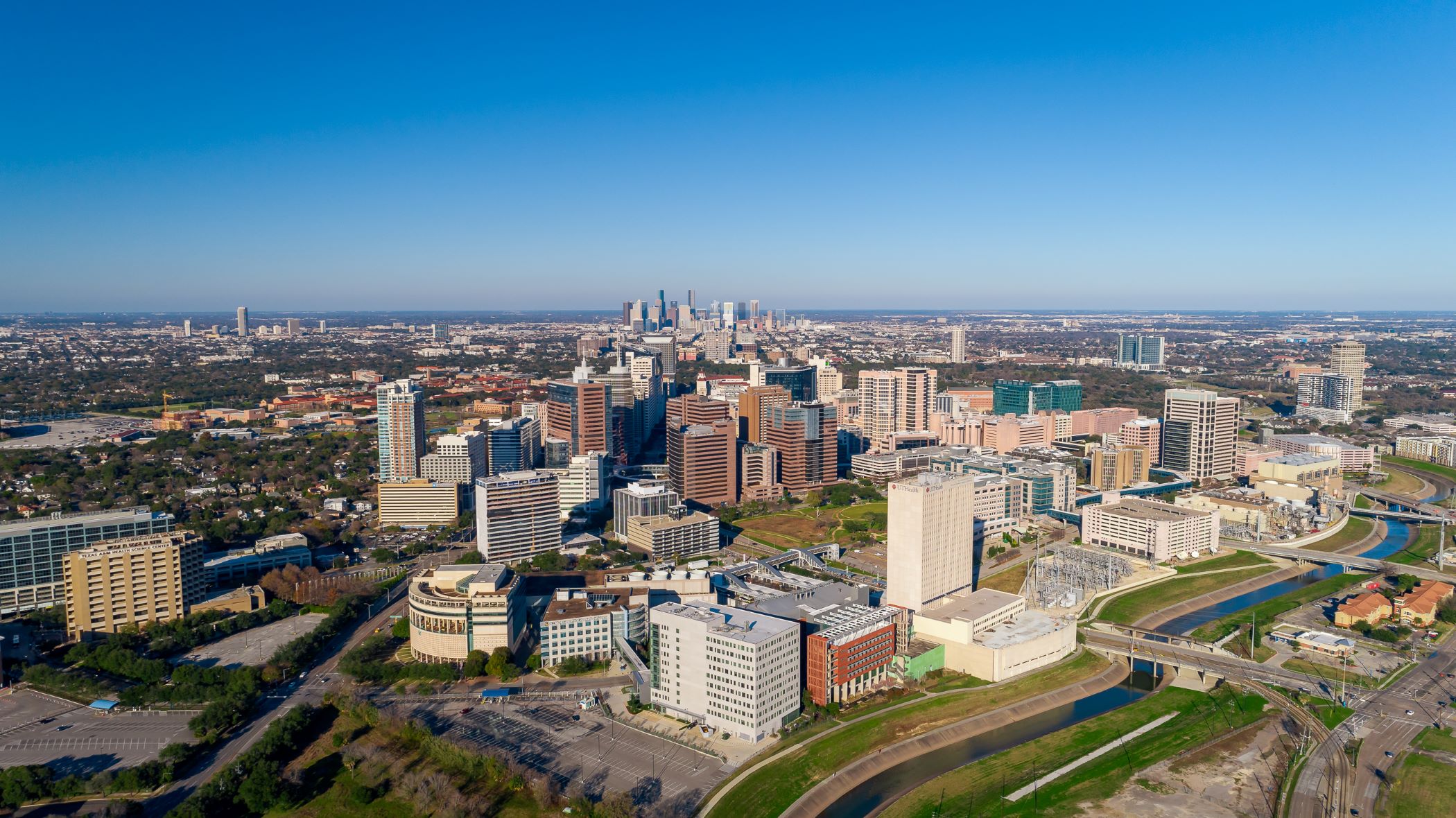Life Sciences
Houston’s Biotech Ecosystem: The Ideal Launchpad for Life Sciences Startups
3/28/25
Launching a biotech startup is one of the most difficult undertakings in science and business. For Sarah Hein, founder and CEO of March Biosciences, choosing Houston made all the difference.
While most early-stage companies struggle to navigate the so-called "valleys of death" — the critical and often underfunded stages between research breakthroughs and real-world treatments — March Biosciences found the support it needed to move fast and scale its innovation. Hein credits Houston’s robust life sciences ecosystem for making that possible – saying Houston is one of the few places where you can go from the lab to commercialization.
“Houston has unique infrastructure and opportunities that made building March Bio here an obvious choice—the scientific and medical expertise of the largest medical center in the world, the local talent pool from that medical center, and then partnership opportunities,” Hein told the Greater Houston Partnership.
Want to learn more about Houston’s life sciences and biotech ecosystem, connect with the Partnership’s Global Life Sciences Sr. Director Verena Kallhoff.
From Research to a Life-Saving Therapy
March Bio was founded out of the Center for Cell and Gene Therapy (CAGT), a collaboration among Baylor College of Medicine (BCM), Houston Methodist and Texas Children’s Hospital. At the CAGT, March Bio worked with scientists to develop its lead therapy, MB-105, a CAR-T cell treatment targeting T-cell lymphoma and T-cell acute lymphoblastic leukemia, two aggressive cancers with limited treatment options.
CAR-T cell therapy involves collecting a patient’s own immune cells, engineering them to better recognize and attack cancer, and then reintroducing them into the body. Proximity to patients is essential for this personalized approach, and Houston’s concentration of clinical expertise makes it an ideal hub. As of mid-2024, the region hosted more than 2,200 active clinical trials, accounting for 11 percent of all trials in the U.S.
MB-105 showed a 44 percent patient response rate in Phase 1 trials at BCM. With that early success, March Bio turned to Houston’s ecosystem to accelerate its development.
Strategic Partnerships
In 2023, March Bio announced a strategic alliance with the CTMC, a joint effort between National Resilience and MD Anderson Cancer Center. CTMC provides biotech startups with comprehensive support, from development and manufacturing to regulatory guidance.
“Our close collaboration with MD Anderson Cancer Center provides access to leading regulatory expertise and one of the world's largest clinical trial programs, ensuring promising therapies reach patients faster,” Amy Hay, Chief Business Officer of CTMC, told the Partnership.
CTMC’s infrastructure enabled March Bio to grow without the financial burden of building its own facilities. “By taking on the heavy operational costs—housing the program in our 60,000 SF industrial-grade cGMP facility—CTMC enabled March to remain lean and focused on innovation,” she explained.
Fueling Growth Through Investment
Beyond research and partnerships, Houston offers the capital resources biotech companies need to grow, and March Biosciences has tapped into them at every stage of its journey.
The company secured early investment from the TMC Venture Fund and Portal Innovations, a venture capital firm that expanded to Houston in 2023 with the goal of supporting startups through funding, lab space and commercialization expertise.
“Portal’s investment in Houston is a mark of the growth and potential of the ecosystem,” said Hein. “March was their first biotech deal in Houston, and that early seed capital allowed us to get a lot of critical work done which set us up for our later financing success.”
March Bio’s momentum continued in 2024 with a $28.4 million Series A financing round, bringing its total amount raised to over $51 million.
Today, March Bio operates out of Portal’s labs at TMC Helix Park, where the company is currently conducting ongoing product development and early-stage discovery work.
State-level funding has been instrumental in fueling March Bio’s growth, with the Cancer Prevention and Research Institute of Texas (CPRIT) playing a significant role. March Bio was awarded a $13.4 million CPRIT grant to support its Phase 2 clinical trial. What sets CPRIT apart is that it is a state agency, established and funded by the State of Texas, making it one of the largest state-funded efforts against cancer. CPRIT has provided more than $3 billion in funding for cancer research and biotech innovation across Texas, contributing to a thriving life sciences ecosystem. With $6 billion dedicated to advancing cancer breakthroughs, CPRIT’s comprehensive approach supports the entire cancer care continuum while driving economic growth by attracting biotech companies and creating jobs.
The company also received support from the Cancer Focus Fund, a MD Anderson–backed initiative that helps advance promising oncology therapies toward commercialization.
A Houston Success Story
Just four years after its founding in 2021, March Bio has advanced into Phase 2 trials and earned FDA orphan drug designation for MB-105. This designation is an important milestone that provides incentives such as tax credits and market exclusivity for rare disease treatments.
“Houston is home to the largest medical center in the world, with particular excellence in oncology, cardiovascular, and neurology research,” said Hein. “Patients come from all over the world to access the world class clinicians and novel clinical trials. Frankly, I think we simply have to keep doing the hard work of translating that leading research into the clinic, focusing on collaboration and growing our bench of talent, and the growth will follow.”
With its interconnected network of research institutions, capital resources, and strategic partners, Houston is proving to be a top destination for biotech companies. As the region continues investing in life sciences, more innovators like March Biosciences are expected to emerge, driving groundbreaking discoveries from concept to commercialization.
Read More

 The Houston Report
The Houston Report



















